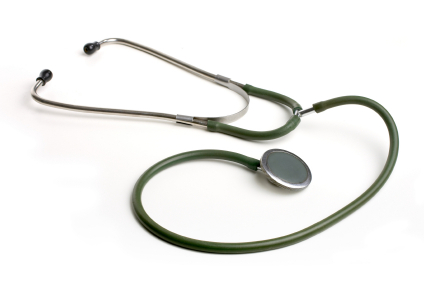Physiotherapy-led cardiac rehabilitation (CR) is a clinical and cost effective intervention for those living with cardiovascular disease
Cardiovascular disease (CVD) includes conditions such as angina, heart attack and stroke. Heart disease is caused by a gradual build up of fatty deposits in the coronary arteries, causing them to narrow and leading to angina.
If a piece of this fatty deposit breaks away from the artery wall it can cause a clot to form which may then travel in the blood stream, lodging and cutting off blood supply to the heart (resulting in heart attack) or brain (leading to stroke).
Around half of patients with CVD have additional health problems, with approximately 30% suffering back pain and arthritis, 21% diabetes, and a further 16% (10,000) having respiratory disease including asthma.
Rehabilitation
Size of the problem
- One in three (191,000) deaths are caused by CVD each year of which approximately a half are from coronary heart disease and over a quarter are from strokes.(8)
- Up to 90% of the risk of a first heart attack is due to nine lifestyle factors that can be changed.(9)
Physiotherapy-led CR programmes are clinically effective in reducing mortality; improving health and quality of life; reducing length of hospital stay; and reducing the number of hospital readmissions.
The programmes also support return to work and self-management of the condition. Around 400 physiotherapists lead or work in approximately 395 CR programmes across the UK.
The physiotherapists’ experience is invaluable in the assessment of cardiac patients, as many present with non-cardiac conditions such as arthritis, back pain, joint replacements, stroke and respiratory problems.
These need to be identified and therapeutic interventions adapted to enable these patients to engage safely with exercise sessions. There is no evidence of the exercise programmes causing harm.
The exercise component of a rehabilitation programme is essential, and demonstrates better outcomes than traditional care.
Physiotherapists are key members and often the clinical leads of the multi-professional team, supporting patients to learn how to be physically active and embrace activity as part of a range of lifestyle improvement measures with individually tailored exercise programmes. The team approach is cost effective and leads to a better prognosis.
Cost of CVD
- Cardiovascular disease (CVD) is a serious public health issue affecting over 2.6million people in the UK and costing an estimated £30billion to the economy.
- CVD cost the health care system an estimated £14.4 billion in 2006, with over 70% of that cost due to hospitalisation.
Reducing the cost burden
 Find out the facts about physiotherapy's effectiveness with our range of evidence-based briefings
Find out the facts about physiotherapy's effectiveness with our range of evidence-based briefings
CR has the potential to reduce the risk of cardiac mortality by 26% over the following five years and is second only to aspirin and beta-blockers in terms of cost effectiveness (£1,100 per life year gained compared with £1,957), but only a small percentage of those people living with heart disease are offered this opportunity.
A recent review by NICE found five studies on CR, all of which confirmed that CR was cost effective compared with traditional care. The results were robust and demonstrated that the incremental cost of each additional Quality Adjusted Life Year (QALY) was about £8,000, which is well below the level usually considered to be affordable in the NHS (about £20,000 to £30,000 per QALY).
It has been estimated that reducing cardiovascular risk in the UK population by even 1% would generate discounted savings of approximately £260 million per year.
Physiotherapists are key to implementing CR programmes that are equally accessible and relevant to all parts of a population. Physiotherapists can show that exercisefocused CR programmes are far more cost effective than other cardiac interventions, demonstrating an average 25% improvement in fitness levels.
The Department of Health recognises the benefits of CR and has produced an evidence based service specification for commissioners.
Are you a CSP member? Please tell us how we can improve these briefings. Just login and complete our pop-up survey
Conclusion
Cardiac rehabilitation is an inexpensive treatment that saves lives. It helps heart patients get back on their feet, physically and emotionally, through exercise, education, and support.
Physiotherapists are the profession of choice to lead CR programmes. Their clinical expertise allows them to tailor exercises, deliver public health messages and support individuals to make lifestyle changes, thereby reducing the economic burden on UK healthcare.

Download the full briefing with references, in either English or Welsh below.



































